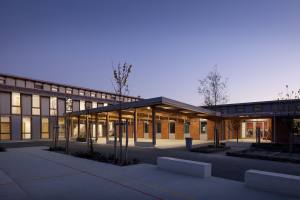
PhD Position on Digital Circular Economy/
Utrecht UniversityThe Dutch government has expressed strong ambitions to move towards a more circular economy. To achieve these ambitions, specific sectors are under scrutiny, including the construction sector.
Your job
The construction sector is responsible for 50% of raw material consumption and 35% of all waste. In the Netherlands, greenhouse gas (GHG) emissions from material extraction, manufacturing of construction products, construction, and renovation of buildings are estimated at 5-12% of the total national GHG emissions. Research shows that greater material efficiency could save 80% of those emissions. Therefore, strong commitments are made at both national and European levels to stimulate the implementation of a circular economy in the construction sector. Several initiatives contribute to this aim, e.g. digital product passports and marketplaces enabling the reuse of construction and demolition waste (CDW).
The UPSCALE project – funded by NWO – aims to transform the traditional supply chains in the construction sector into dynamic supply networks enabled by Peer-to-Peer (P2P) principles. The project leverages the potential of digitalisation to create a trusted digital ecosystem: a decentralised network of existing built assets, circular construction hubs and users to help link, evaluate, track, trace and reuse construction products and materials throughout their service lifecycle.
In this PhD project, you will:
- assess the circularity readiness level of the (Dutch) construction sector by analysing the key stakeholders and best practices for circular re-use and reduction of construction and demolition waste (CDW);
- identify the systemic barriers (e.g., behavioural, technological, regulatory) for the adoption of digital circular solutions for CDW (e.g. lifelong networked product passport, Track&Trace models, digital twins, decentralised networks, product-as-a-service business models);
- develop and test strategies to increase trust and adoption of network-oriented circular construction practices via co-design and end-user involvement in demonstrator sites;
- create an evidence-based implementation roadmap for digital circular solutions for CDW;
- disseminate your research findings through academic publications and other forms of outreach;
- be involved in selected teaching activities related to your expertise.
You will become part of the Innovation Studies group at the Copernicus Institute of Sustainable Development. You will join a recognised team of researchers, under the supervision of Dr Laura Piscicelli (Innovation Studies, Copernicus Institute of Sustainable Development) and Professor Carolina Castaldi (Geography of Innovation, Department of Human Geography and Planning).
To conduct your PhD research you will also collaborate closely with the UPSCALE partners, including Eindhoven University of Technology (project leader), Delft University of Technology, Rotterdam University of Applied Sciences, ABN AMRO, BIMConnected, Volker Wessels, Huisrijk, Madaster, InnoTractor, SPARK and the Municipality of Rotterdam.
Your qualities
We are looking for a colleague with the following knowledge, skills, and experience:
- You have a (research) Master’s degree in Innovation Studies, Sustainability Science, Economic Geography or a related discipline.
- You have a strong interest in circular economy and the construction sector.
- You have a clear understanding of social science research methods, in particular qualitative ones, demonstrated through your grade transcripts and CV. Experience with quantitative methods is an added value.
- You have excellent writing skills, demonstrated through a writing example such as your Master’s thesis.
- You can work independently and communicate professionally.
- You are excited to work in an interdisciplinary team and able to interact with a wide range of stakeholders.
- You are proficient in spoken and written English (C1 level).
- You are proficient in Dutch (or willing to obtain proficiency within 12 months) given the envisaged interaction with Dutch construction professionals and stakeholders during the research.
- You are motivated to develop your teaching skills.
Our offer
We offer:
- a position for one year, with an extension to a total of four years upon a successful assessment in the first year, and with the specific intent that it results in a doctorate within this period;
- a gross monthly salary between €2,770 and €3,539 in the case of full-time employment (salary scale P under the Collective Labour Agreement for Dutch Universities (CAO NU);
- 8% holiday pay and 8.3% year-end bonus;
- a pension scheme, partially paid parental leave and flexible terms of employment based on the CAO NU.
In addition to the terms of employment laid down in the CAO NU, Utrecht University has a number of schemes and facilities of its own for employees. This includes schemes facilitating professional development, leave schemes and schemes for sports and cultural activities, as well as discounts on software and other IT products. We also offer access to additional employee benefits through our Terms of Employment Options Model. In this way, we encourage our employees to continue to invest in their growth. For more information, please visit Working at Utrecht University.
About us
A better future for everyone. This ambition motivates our scientists in executing their leading research and inspiring teaching. At Utrecht University, the various disciplines collaborate intensively towards major strategic themes. Our focus is on Dynamics of Youth, Institutions for Open Societies, Life Sciences and Pathways to Sustainability. Sharing science, shaping tomorrow.
Utrecht University’s Faculty of Geosciences studies the Earth: from the Earth’s core to its surface, including man’s spatial and material utilisation of the Earth – always with a focus on sustainability and innovation. With 3,400 students (BSc and MSc) and 720 staff, the faculty is a strong and challenging organisation. The Faculty of Geosciences is organised in four departments: Earth Sciences, Human Geography & Spatial Planning, Physical Geography, and Sustainable Development.
